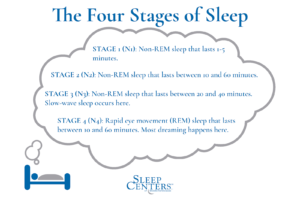
Introduction:
In the complex and fascinating world of sleep, one stage stands out for its remarkable benefits – “slow-wave sleep.” Often referred to as deep sleep or Stage N3, this stage plays a pivotal role in rejuvenating the body and mind. In this article, we’ll delve into the realm of slow sleep, exploring its significance, characteristics, and the incredible ways it contributes to our overall well-being.
Understanding Slow-Wave Sleep
Slow-wave sleep is a distinct phase of sleep that falls under the umbrella of non-REM (rapid eye movement) sleep. It is the stage that encompasses the deepest and most restorative sleep, characterized by slow brain waves known as delta waves. This stage is essential for physical repair, immune system support, and memory consolidation.
The Power of Restoration
Physical Rejuvenation:
During slow sleep, the body focuses on healing and restoration. Hormones are released to promote tissue growth and repair, aiding in muscle recovery and overall physical well-being.
Immune System Strengthening:
Slow-wave sleep plays a crucial role in bolstering the immune system. This stage enables the body to fight off infections and illnesses more effectively, contributing to overall health.
Memory Consolidation:
While we sleep deeply, the brain is actively working to consolidate and organize memories. Slow-wave sleep enhances learning and helps us retain information gathered throughout the day.
Regulation of Mood and Emotions:
Adequate slow-wave sleep is linked to better emotional regulation and mental resilience. It contributes to reduced stress levels and an improved sense of well-being.

The Sleep Cycle and Slow-Wave Sleep
Sleep occurs in cycles that alternate between REM and non-REM stages. This form of sleep typically occurs earlier in the night, with the amount of time spent in this stage decreasing as the night progresses. However, it remains a critical component of a full night’s rest.
Enhancing Slow-Wave Sleep
Create a Sleep-Conducive Environment:
Ensure your sleep environment is comfortable, dark, and quiet. A supportive mattress and cozy bedding can significantly contribute to a good night’s sleep.
Prioritize Consistent Sleep Patterns:
Maintain a regular sleep schedule by going to bed and waking up at the same time each day. Consistency supports healthy sleep cycles.
Limit Stimulants Before Bed:
Reduce caffeine and screen time before bedtime, as these can interfere with the quality of your sleep.
Manage Stress:
Practice relaxation techniques such as meditation, deep breathing, or yoga to manage stress and create a more relaxed state conducive to slow-wave sleep.
Conclusion
Slow-wave sleep is a true marvel of the cycle, offering a range of benefits that contribute to our physical, mental, and emotional well-being. Recognizing the importance of this stage and adopting practices to enhance its quality can lead to profound improvements in overall health and vitality. Embrace the beauty of restorative rest and give yourself the gift of nourishing sleep for a happier, healthier life.
